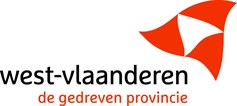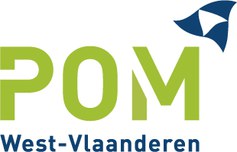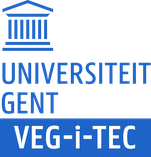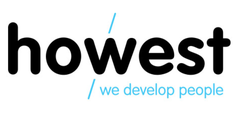Resilient VEG-i-TEC
As a smart food hub, Resilient VEG-i-TEC wants to be an accelerator to help food companies innovate and thereby achieve their energy and water-related KPIs and strive for zero-waste approach.
Funding
Resilient VEG-i-TEC is a research project of the EFRO GTI West-Vlaanderen type.
Summary
The Resilient VEG-i-TEC project aims to provide solutions for the many challenges faced by (West) Flemish food companies when pursuing an accelerated energy transition, while also focusing on more sustainable water usage and a more robust water system (cf. Green deal/NECP,...). Four defined themes are targeted for a more resilient, sustainable, and smarter food processing:
- Increased energy efficiency: By valorizing the cold and (residual) heat potential from processes that can serve each other (using buffer tanks with different operating temperatures) or for building heating (district heating network).
- Increased integration of renewable energy sources: Maximizing the utilization of renewable energy sources (with or without electrical buffering) with minimized impact on process requirements and continuity.
- Optimal water management: By limiting water consumption; maximizing sustainable (reuse) and alternative (e.g., rainwater) water sources through the implementation of appropriate infrastructure in the most cost-effective manner.
- Smart energy management: Energy management systems (EMS) are a crucial step in enabling advanced energy optimization. What are the opportunities/challenges for enabling smart control (augmented with artificial intelligence (AI) tools and machine learning (ML) techniques) in the Flemish food industry? EMS systems must provide a solution to control and optimize (1), (2), and (3) as a whole.
VEG-i-TEC aims to be a smart food hub accelerator to assist food companies in innovating to achieve their energy- and water-related KPIs, becoming more independent from fluctuating energy and water prices, and keeping raw material shortages and production costs under control (competitive product offering) without compromising the quality/safety of the finished product. Research will investigate how advanced smart energy and water management can lead to optimizations in water, electricity, and heat. Research projects will be set up based on this project and existing infrastructure.
A persistent challenge for companies is the valorization of by-products (water or plant-based) inherently formed during the processing of food products, in an economically and sustainable manner. One of the bottlenecks is the logistics chain, given the perishability (water content) of the generated biomass and by-products. To provide a better response to this, the existing equipment for pre-treatment and the associated analytical equipment will be expanded, including the installation of both on- and offline measuring devices on the current pilot lines for processing plant-based products. Additionally, the pilot lines will be completed and made more flexible so that the process chain from harvested product to packaged product meets the requirements for accurate energy and water measurements. Using this new infrastructure (fixed and mobile), projects will be initiated to support companies in addressing the above challenges.
Partners
Duration
- 1st of January 2024 to the 31st of December 2026
- Total budget: 1.996.400,84 Euro
Contact
Coordinator: VEG-i-TEC research group - Ghent University





